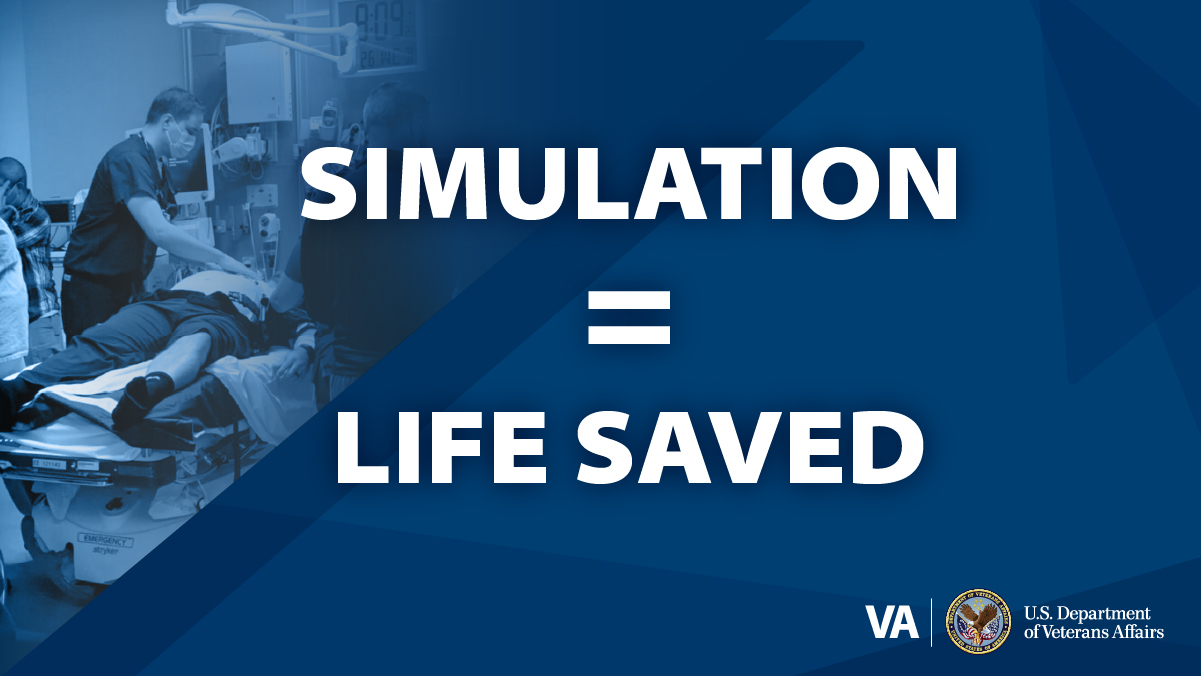When a gunshot wound (GSW) victim arrived at the Minneapolis Veterans Affairs Healthcare System (MVAHCS), the staff was ready. Despite GSWs not being a common occurrence for a non-trauma facility, like MVAHCS, every health care professional quickly and effectively responded. That’s because at VA, simulation training helps prepare staff for any and all possibilities, and as MVAHCS recently underwent a comprehensive GSW simulation training, staff were prepared for this very moment.
Simulation training builds needed skills
GSWs pose an increasing threat in society, necessitating preparedness even in non-trauma center facilities such as the MVAHCS. To ensure prompt and effective medical stabilization, the MVAHCS conducted an interprofessional GSW simulation in its emergency department (ED), involving VA federal police, blood bank personnel, physicians, anesthesia providers and nursing staff. This comprehensive simulation, led by dedicated simulation staff and medical students, aimed to test system protocols, evaluate clinical response readiness and support quality improvement efforts.
During the simulation, two VA police officers entered the ED with a simulated GSW to one officer’s back, initiating a rapid trauma assessment by the ED staff. Immediate interventions for hemorrhagic bleeding control, including emergent blood product administration, were identified and implemented. Through effective communication and utilizing the hospital’s revised emergency blood release (EBR) and massive transfusion protocol (MTP), the staff demonstrated the ability to meet quality benchmark delivery times for both protocols.
The simulation not only highlighted the importance of standardized blood product ordering and communication but also emphasized the need for clearly defined roles and responsibilities during trauma events to optimize team dynamics. Participants valued the review of weapon safety during active shooter situations, improved their knowledge and understanding of emergency blood release and massive transfusion protocol, and identified areas for growth, such as familiarity with the blood bank location and enhanced communication skills in high-stress situations.
Even five months after the simulation, surveys showed that participants increased confidence, improved communication skills, heightened their sense of safety regarding gunshot wounds and better understood their treatment options. Furthermore, lessons learned from the simulation were instrumental in general understanding and process improvement.
Simulation training turns into real life action
Shortly after this training, the skills and insights gained during the simulation became life-saving factors for a GSW victim in critical condition at the MVAHCS. Thanks to the comprehensive simulation training, the responding staff—from nurses to security—demonstrated exceptional clinical capabilities in caring for this trauma patient. The team’s application of the simulation-based trainings was instrumental in providing immediate and effective treatment. The patient was successfully stabilized and subsequently transferred to a trauma hospital for further care.
As part of VA’s Fourth Mission and as a partner to neighboring metropolitan hospitals across the country, VA is committed to being clinically ready to support community patients requiring medical overflow. To do so, VA provides and supports simulation training like this through the Simulation Learning, Evaluation, Assessment, and Research Network (SimLEARN), VHA’s program for simulation in health care training. SimLEARN provides an ever-growing body of curricula and best practices that improve health care for our nation’s Veterans and, when needed, every American. The use of innovative technologies in a safe learning environment enhances diagnostic, procedural and communication skills to support quality care and the best possible outcomes—like saving a life.
Topics in this story
More Stories
Study underscores important role COVID vaccination can have in protecting Veterans from infection and reducing long-term health consequences
Columbia VA’s robotic surgery teams completed their 800th robotic surgery and are on schedule to hit 1,000 by the end of the year.
In a decentralized clinical trial, Veterans can participate from their own homes or local VA instead of having to travel to a research site.






